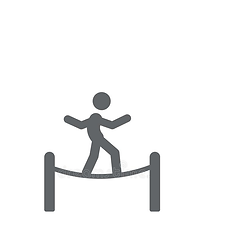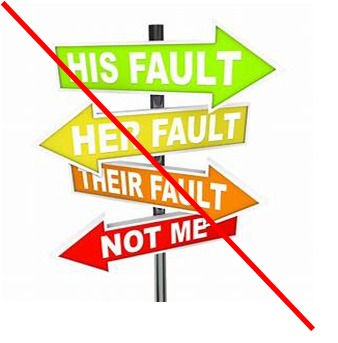
Beeing a leader or a coworker is a constant cooperation / balancing act with others
In my experience one of the more important areas to address is the balance between feeling and logic,
in my vocabulary Heart and Mind

Heart and Mind Management provides Assessment, Coaching, Training, Workshops supporting in management and organisation effectiveness
We updated the homepage on 1 June 2023
I have recorded spoken presentations on the following subjects and launched them, and also updated the homepage
Training

Is one way to develop yourself
- but there are more ways, let’s start with putting Training into a context

Develop your skills continuously to get to the top - or to remain there

There are different ways to develop yourself
How do you learn
(The picture is built on the results from Research of creative leadership)
The best results are achieved when they all work together
This is focused on training and the material in Building blocks and Company Philosophy are prepared to be used in training:
-
Power Point Presentations
-
Spoken word to present the PPP
So training is just one way to develop
Let us concentrate on training. Remember 5 factors when you teach


1. Catch the attention
The brain registers a millon bits of information each second, but only 10 of them get
the attention needed to create a long term memory. So your task as a teacher, is to
create the attention to what you need the audience to remember
2. Seduce the brain, ensure to touch the audience’s feelings and make the subject
relevant.
Without the neurotransmitter dopamine the brain will not be influenced nor
bothered

3. Give time and possibility for the audience to think for themselves.
Theese thoughts set the foundation for long term memories.

4. Ask for response from the audience.
Giving a structured feedback (in spoken words or text) in any way, forces you to
express your newly learned information (forces you to think).

5. Test the newly learned information by throwing questions or by practice.
It is more important to practice to recover the newly learnt knowledge from your
own brain, than repetition of the knowledge
What do I mean with Practice:
-
To achieve dialogue and participation
-
Team work

-
Talk with a friend (beehive)
-
Talking stick. Anyone holding the item/stick can talk uninterrupted and the rest have to listen
-
Reflect individually - pair up - all together. Start by reflecting individually – pair up and put opinions on stickers – put stickers on the board. Group, characterize, discuss the stickers and if needed vote
-
Reflecting teams. A steerd dialogue model to achieve advice, tips and new viewpoints from colleagues. During this, members are trained to put open questions
-
World café. Useful when you have large groups. Divide into smaller groups at tables where different topics are discussed, each with a discussion leader taking notes. When all groups have visited all tables, the discussion leaders summarize the total outcome
-
4 corners of the room. Let each corner of the room represent different options. Let the participants stand in the corner representing their opinion. Discuss and listen.

Team work
An example of Teamwork is shown in the PPP document
Using: When teaching you learn
Assessment

To analyse how things are working in the organisation

The output from an assessment is
Awareness and agreement on how things work today
-
A list of what is working well and what can be improved
-
Decision on a common priorisation of things to improve
-
A common plan of when what improvements are to be implemented
The result of the assessment can not be used to compare different organisations, it is there to create awareness and a common understanding of what can be done to improve your own organisation

The Assessment Material that I offer, is a set of questions developed to create a discussion and ideas for improvements

The Assessment Material is organised like the Company Philosophy and in each area there are questions
-
Change
-
Gut feeling
-
Synchronisation and Timing
-
Teamwork and Individuals
-
Process
-
Quality
-
Customer Expectation

Depending on what part of the product life cycle you concentrate, you tend to work in different ways
And the effect of this is that some parts of the Assessment are NA (not applicable in your company)
Evaluate the assessment

System thinking drives the way we evaluate the assessment (a low value destroys everything)
-
Lowest mark on an individual question
-
Lowest mark in a section rules
-
Fraction of questions above this lowest mark becomes the decimal value
From this presentation of the Assessment result you can pick items that can be improved

Pick chart (really not using the assessment result)

-
Put all the improvements in a pick chart try to judge the Effect you need to put in and the Effect you receive when the suggestion is implemented
-
Pick the ones with High Effect and Low Effort as an indication to start the discussion
-
Based on what you want and the results from the pick chart and decide on some of the ideas and concentrate on them
-
You need to start somewhere (showing coworkers that change is possible and then move on)
Choose among Improvements

Create and decide a timeplan for improvements

Create a timeplan for the improvements together with all other Projects.
You tend to use the same resources for both Projects and Improvement Projects, so it is important to see how they work together.
Projects and Improvements are equally important
Planned are 4 workshops during June 2023
-
No cost for participating
-
No limit in numbers attending the meetings

Workshop
13/6 2023
10.00-10,30
17.00-17.30

Coaching
20/6 2023
10.00-10,30
17.00-17.30


















